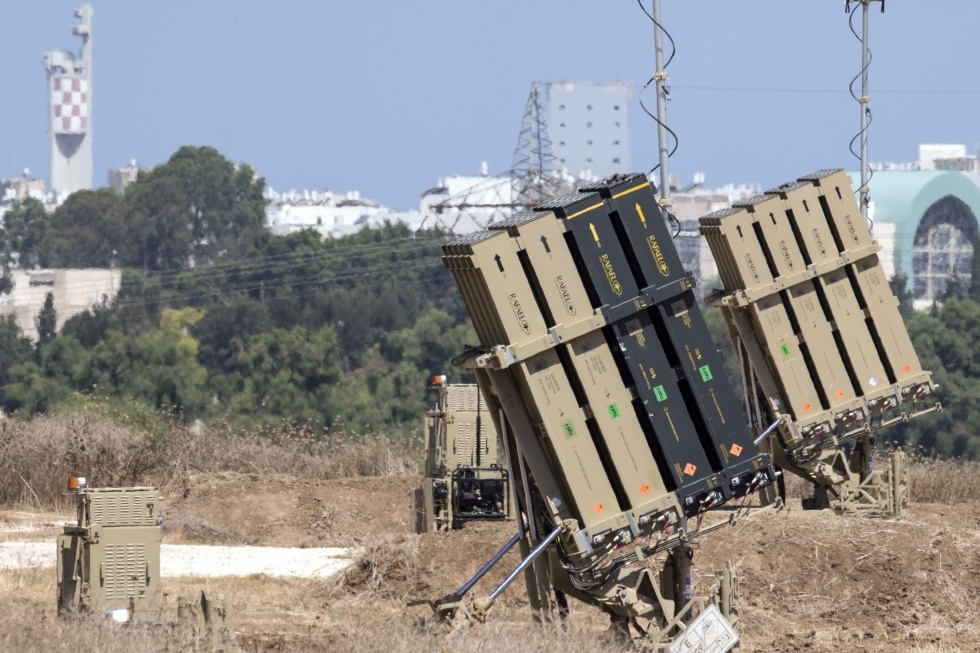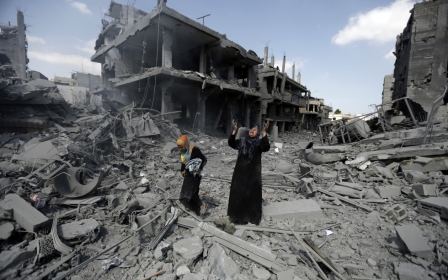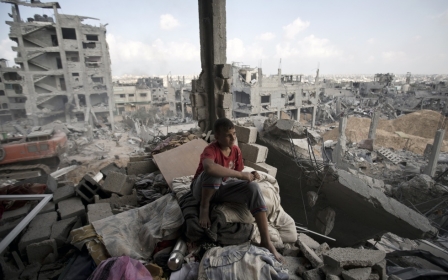Israel deploys Iron Dome batteries near Gaza border

Two Iron Dome anti-missile batteries were deployed by the Israeli army on Thursday in two areas close to the Gaza Strip. This comes a day after Israel shelled the Palestinian enclave, Israeli sources have said.
Israel Radio quoted the Israeli army as saying that the two batteries were deployed in Beersheba and Netivot settlement in southern Israel close to the border with the Gaza Strip.
This comes amidst heightened tensions this week. A member of the Qassam Brigades, the military arm of Hamas, was killed in southern the Gaza Strip on Wednesday in an Israeli artillery attack in the area.
Israel has since warned of the potential for a new military campaign against the Gaza Strip after the army said Palestinians opened fire on a border patrol.
Then on Friday Israeli army forces opened fire on agricultural land in the southern Gaza Strip, but without causing any casualties, eyewitnesses have said.
Israeli forces stationed in Kissufim area on the border with the blockaded coastal enclave fired their machine guns in the direction of the southern Khan Younis city, an eyewitness told Anadolu Agency. The gunfire has slightly damaged agricultural crops in the area, he said.
The Israeli army, for its part, has yet to comment on the reported incident.
Palestinians living near the border complain that the Israeli troops stationed along the border are frequently opening fire across the border into their areas.
Earlier this year, Israel and the Palestinian groups signed a cease-fire agreement that ended Israel's seven-week-long military onslaught on the coastal territory.
The onslaught left over 2,160 Palestinians dead and more than 11,000 injured – the vast majority of them civilians – in July and August.
At least 73 Israelis – 68 soldiers and five civilians – were also killed during the offensive, according to Israeli figures.
Gaza women protest against Gaza crossing closure
Scores of Palestinian women on Thursday staged a protest on the Palestinian side of the Rafah crossing on the border between Egypt and the Gaza Strip to demand the reopening of the crossing.
The women said the crossing needed to be reopened so that thousands of Palestinian medical patients could seek medical treatment outside the Gaza Strip, which has been suffering an intense Israeli blockade since 2007.
"Palestinians have the right to freely move through the crossing," Esraa al-Areer, the spokeswoman of "Women against the Blockade", the Palestinian movement that organized the protest, told Anadolu Agency.
She called on Egyptian authorities to reopen the crossing to ease the travel of thousands of Gaza's Palestinians.
Al-Areer said around 38,000 Palestinians needed to travel from Gaza to other areas.
She called on Arab and Islamic states to support the Palestinians of the Gaza Strip and help them to break the Israeli siege.
Egypt closed the Rafah border crossing, Gaza's only access to the outside world that is not controlled by Israel, on October 24 following an attack on a military site in the Sinai Peninsula that left 31 Egyptian troops dead.
Egypt has tightened its grip on the border with the blockaded Gaza Strip since last year's ouster of Mohamed Morsi – the country's first freely elected president – by the army.
Repeated crossing closures have made life even more difficult for Gaza's roughly 1.9 million residents.
Middle East Eye propose une couverture et une analyse indépendantes et incomparables du Moyen-Orient, de l’Afrique du Nord et d’autres régions du monde. Pour en savoir plus sur la reprise de ce contenu et les frais qui s’appliquent, veuillez remplir ce formulaire [en anglais]. Pour en savoir plus sur MEE, cliquez ici [en anglais].




